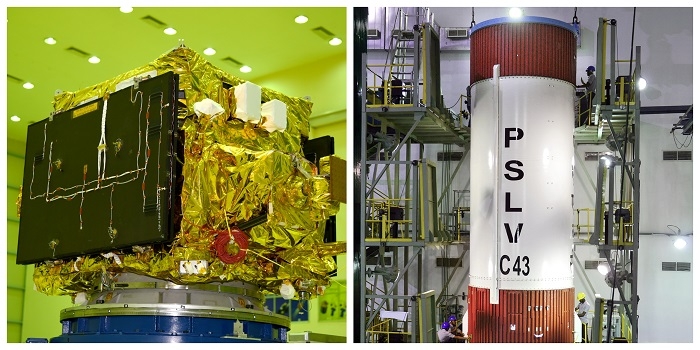India to launch ‘HysIS’ with 30 foreign co-passengers tomorrow..!

The countdown for the launch of the national space agency ISRO’s Polar Satellite Launch Vehicle PSLV-C43 began this morning at 05:58 IST. The rocket PSLV will put the satellite HysIS first at an altitude of about 637 kilometer tomorrow by 09:58 IST.
Along with HysIS, 30 co-passenger satellites from 8 different countries will be launched by PSLV-C43, out of which 23 alone constitute from USA. However, satellites from Colombia, Malaysia, Australia and Spain will be launched by the space agency for the first time. PSLV-C43 forms the 45th flight of the Polar Satellite Launch Vehicle, which will up launch the fleet of satellites from the First Launch Pad of Satish Dhawan Space Centre from Sriharikota.
What is HysIS ?
HysIS is an earth observation satellite developed by ISRO forming the primary satellite of the PSLV-C43 mission. The primary goal of HysIS is to study the earth’s surface in visible, near infrared and shortwave infrared regions of the electromagnetic spectrum. The mass of the spacecraft is about 380 kg with the mission life constituting 5 years.